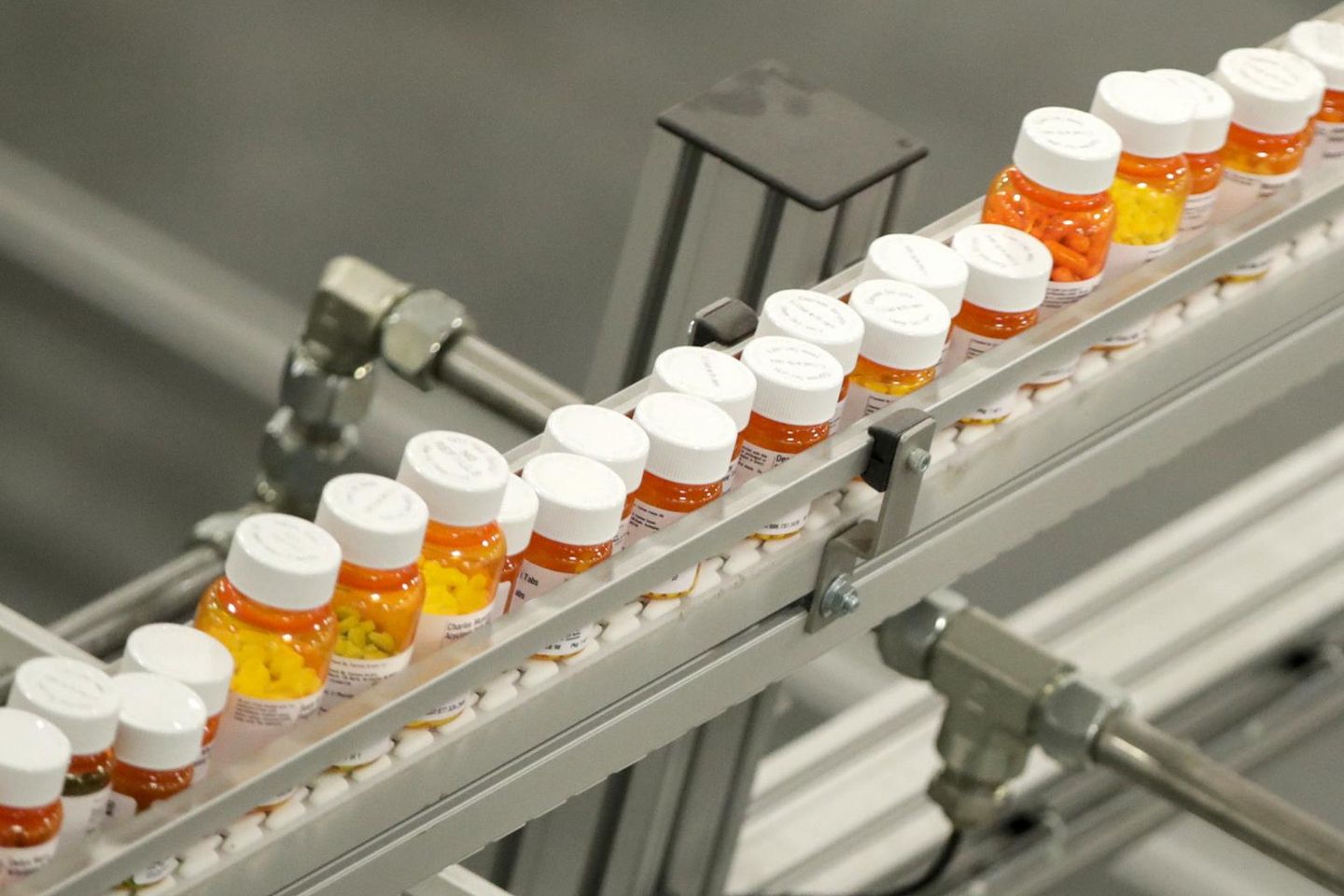
President Trump on Monday resurrected his “Most Favored Nation” policy, which he promised would cut pharmaceutical drug prices by 30% to 80%.
The policy pegs the price for a drug in the U.S. to the lowest rate charged for the same medicine in another part of the world.
Mr. Trump signed an executive order that established that the U.S. will pay prescription drug prices based on their lowest costs in another country.
He implemented the plan through an executive order for the health secretary to establish a mechanism for Americans to buy drugs directly from manufacturers at the most-favored-nation price, bypassing middlemen.
“The United States will no longer subsidize the health care of foreign countries, which is what we were doing. We’re subsidizing others’ health care in countries where they paid a small fraction of what for the same drug.”
He said Americans have been stuck paying “many, many times more” for the same prescription drugs.
Americans pay the most for pharmaceuticals and prescription drugs compared to the rest of the world, often about three times the amount as other developed nations.
“We will no longer tolerate profiteering and price gouging from Big Pharma,” said the president, adding that other countries forced the pharmaceutical industry to lower prices abroad.
“I’m not sure they really felt comfortable doing but they’ve gotten away with it,” he said. “These countries, the European Union, have been brutal.”
Pharmaceutical Research and Manufacturers of America (PhRMA) president and CEO Stephen J. Ubl backed some of Mr. Trump’s plan. He also blamed America’s sky-high drug prices on “foreign countries not paying their fair share and middlemen driving up prices for U.S. patients.”
“The Administration is right to use trade negotiations to force foreign governments to pay their fair share for medicines. U.S. patients should not foot the bill for global innovation,” Mr. Ubl said in a statement.
“The U.S. is the only country in the world that lets PBMs [pharmacy benefit managers], insurers and hospitals take 50% of every dollar spent on medicines. The amount going to middlemen often exceeds the price in Europe. Giving this money directly to patients will lower their medicine costs and significantly reduce the gap with European prices.”
However, he warned against “importing” low prices charged abroad.
“Importing foreign prices from socialist countries would be a bad deal for American patients and workers. It would mean less treatments and cures and would jeopardize the hundreds of billions our member companies are planning to invest in America – threatening jobs, hurting our economy and making us more reliant on China for innovative medicines.”
Mr. Trump said that, under his plan, he expects drug prices in the U.S. to come down by at least 59%.
A wide range of medications will be impacted by the pricing plan, including popular GLP-1 diet drugs such as Ozempic and Wegovy.
In announcing the plan, Mr. Trump said he had a wealthy businessman friend who is “seriously overweight” and pays $1,300 for “the fat shot drug.” He was shocked to learn that it costs $88 for the same drug in London.
Mr. Trump said he brought the issue back to a drug company representative, and they finally came to an agreement.
The administration also plans to take action to make sure that foreign countries will not unfairly treat pharmaceutical companies abroad through its U.S. Trade Representative and Commerce Department.
Health Secretary Robert F. Kennedy Jr. will be taking action to facilitate, where appropriate, the direct sales to consumers.
If pharmaceutical companies resist, they could face a series of federal penalties, including anti-competitive measures, enforced by the Justice Department and the Federal Trade Commission, as well as potential actions related to exporting of pharmaceuticals.
Mr. Trump said the administration plans to open up the U.S. market to “safe and legal imports of affordable drugs from other countries,” which would place a “dramatic downward pressure on prices.”
He also threatened more tariffs on countries that do not cooperate.
“If necessary, we’ll investigate the drug companies, and we’ll, in particular, investigate the countries that are doing this, and we will add it on to the price that we charge them for doing business in America,” the president said. “In other words, we’ll add it on to tariffs if they don’t do what is right.”
Pharmaceutical stocks dropped on Monday after Mr. Trump pledged to slash prescription drug prices to counter those in other wealthy nations.
The president attempted to adopt a similar policy in 2020 to slash drug costs, but a federal judge prevented him from doing so after groups representing the pharmaceutical industry filed a lawsuit.
The 2020 plan would have tied prices of Medicare Part B drugs, which are medicines dispensed in a health-care facility, to the cost of drugs in countries such as Canada, Germany and the U.K.
Mr. Trump’s first administration estimated that U.S. taxpayers would save more than $85 billion over seven years, which would cut into U.S. annual spending of over $400 billion on drugs.












